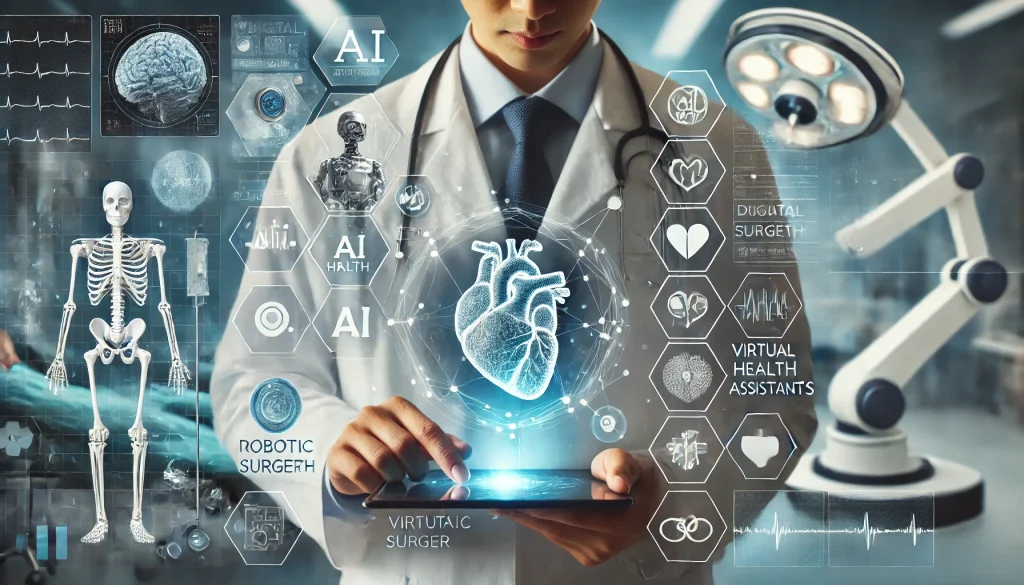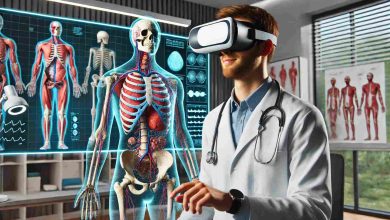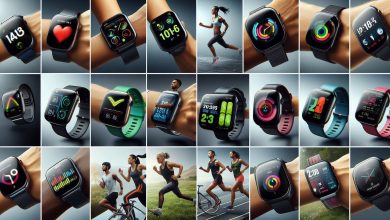How AI is Revolutionizing Healthcare: Future Trends and Innovations
How AI is Revolutionizing Healthcare
Artificial intelligence (AI) has proved to be transformation pressure in many industries and health care is no exception. From improving diagnosis and remedy planning to improving patient care and development of AI drugs, it revolutionizes the way the health care method. With the withstanding improvement in how to learn gadget, the processing of herbal language and data analysis is the ability to transform the panorama of health care gigantic. This article examines the present and fateful development in the field of innovation of medical staff with AI focusing on how AI improves the results for patients and medical carriers.
1. AI in Diagnostics: A New Era of Early Detection
One of the maximum considerable ways to revolutionize health care is its impact on diagnosis. Traditionally, diagnosis of diseases was time -consuming and often susceptible to mistakes, depending on human knowledge. However, AI has brought more accurate and effective diagnostic tools that could record a large number of records for a fraction of the time when it requires human beings.
AI algorithms, especially algorithms, especially based on machine studies, can analyze medical photographs including X -rays, CT scans and MRI with excessive accuracy. For example, AI -powered systems are already getting used to the location of cancer, including breast cancer, lungs of cancer and most cancer, in advance, often before symptoms and symptoms occur. This timely detection can cause greater effective treatment and significantly improve the effects of the affected person.
In addition, AI modes can predict the likelihood of illness by analyzing genetic records, ways of life and scientific history, and to provide predictive knowledge that allows proactive care. By automating these processes, health care experts can be aware of the treatment and affected person at the same time as AI processes routine diagnostic tasks, reducing human errors and increasing performance.
2. Personalized Medicine: Tailoring Treatments for Individuals
Personalized medicine, also known as precision medicine, refers to customizing healthcare treatments based on individual patient characteristics, including genetic makeup, lifestyle, and environment. AI is playing a pivotal role in the development of personalized treatment plans.
Through machine learning algorithms, AI can analyze vast datasets of patient information to identify patterns and correlations that might not be immediately apparent to human doctors. This allows for the identification of the most effective treatments for a specific patient, as opposed to the one-size-fits-all approach that has been prevalent in traditional medicine.
For instance, AI models can predict how a patient will respond to certain medications, enabling doctors to choose the right drug and dosage. In oncology, AI is being used to create individualized treatment plans for cancer patients by analyzing their genetic profiles and determining the best course of action. This approach not only improves the efficacy of treatments but also minimizes adverse side effects.
3. AI in Drug Discovery and Development
The drug discovery process is notoriously lengthy and expensive, with many drug candidates failing in clinical trials. AI is speeding up this process by predicting which compounds are most likely to succeed in treating specific diseases, significantly reducing the time and cost involved in bringing new drugs to market.
AI algorithms can analyze large databases of chemical compounds and predict their efficacy against various diseases. By simulating the interaction between drugs and biological systems, AI can help identify promising drug candidates that would have been overlooked through traditional methods.
AI is also transforming clinical trials by identifying suitable candidates based on their genetic profiles, ensuring a better match between patients and treatments. This not only speeds up the recruitment process but also increases the likelihood of successful outcomes, as patients are more likely to benefit from therapies that align with their individual characteristics.
4. AI-Powered Virtual Health Assistants
AI-powered virtual health assistants are becoming increasingly popular in both clinical and non-clinical settings. These digital assistants use natural language processing (NLP) to interact with patients, answer medical questions, and provide personalized healthcare advice. They can be accessed through smartphones, wearables, or even voice-activated devices.
Virtual health assistants are helping bridge the gap between patients and healthcare providers, particularly in rural areas where access to medical professionals may be limited. These AI-driven systems can conduct preliminary assessments, monitor chronic conditions, and remind patients to take medications. They also offer round-the-clock support, providing users with real-time answers to health-related inquiries.
In addition, AI-powered chatbots are being used in mental health care to provide support to individuals struggling with anxiety, depression, and other mental health conditions. These systems can engage in conversations, offer coping strategies, and recommend professional help when necessary. The use of AI in mental health care is not only increasing access to care but also reducing the stigma surrounding mental health issues.
5. AI in Healthcare Robotics: Enhancing Surgery and Patient Care
Robotics in healthcare has long been a promising field, and AI is further advancing its capabilities. AI-powered robotic systems are being used in surgeries to improve precision, reduce human error, and enhance patient outcomes. For example, robotic-assisted surgeries allow for minimally invasive procedures, reducing recovery times and minimizing the risk of complications.
AI is also enabling the development of autonomous robots that can assist in routine patient care. These robots can help with tasks such as administering medications, monitoring vital signs, and even assisting with physical therapy. By automating these tasks, healthcare professionals can focus on more complex and critical aspects of patient care, while robots take care of repetitive and mundane activities.
6. AI for Population Health Management
AI is also playing a significant role in population health management, helping healthcare systems identify trends and risks on a larger scale. By analyzing vast amounts of data from electronic health records (EHRs), wearables, and other sources, AI can identify health patterns and predict outbreaks of diseases, such as flu or COVID-19, before they spread widely.
This predictive capability allows healthcare providers and public health organizations to take preventative measures, allocate resources effectively, and reduce the overall burden on healthcare systems. AI can also be used to identify at-risk populations, such as individuals with a higher likelihood of developing chronic conditions, enabling early interventions that can prevent the onset of disease.
7. Ethical Considerations and the Future of AI in Healthcare
While AI holds immense promise for revolutionizing healthcare, it also raises important ethical considerations. The use of AI in healthcare involves sensitive patient data, and ensuring the security and privacy of this information is crucial. Healthcare providers must work with AI developers to ensure that data is handled responsibly and in compliance with regulations such as the Health Insurance Portability and Accountability Act (HIPAA).
Another challenge is the potential for AI to exacerbate health disparities. If AI systems are not trained on diverse datasets, they may not perform equally well for all demographic groups, leading to biased results. To ensure that AI benefits everyone equally, healthcare systems must ensure that AI models are trained on diverse and representative data.
Looking ahead, the future of AI in healthcare is incredibly promising. As AI continues to evolve, we can expect even greater advancements in areas such as gene editing, real-time diagnostics, and personalized care. The collaboration between healthcare providers and AI will be essential in unlocking the full potential of this technology and ensuring that it is used ethically and responsibly.
Conclusion
AI is already making significant strides in transforming the healthcare industry. From improving diagnostic accuracy and personalizing treatments to accelerating drug development and enhancing patient care, AI is revolutionizing the way healthcare is delivered. As AI technology continues to advance, it holds the potential to further enhance outcomes, reduce costs, and make healthcare more accessible to individuals around the world. However, as with any transformative technology, it is essential that AI in healthcare is deployed thoughtfully and ethically to ensure that it benefits everyone.
The future of healthcare is undoubtedly intertwined with AI, and we are only beginning to scratch the surface of its capabilities. As AI continues to evolve, it will open new doors for medical research, patient care, and disease prevention, fundamentally changing the way we approach health and wellness.



